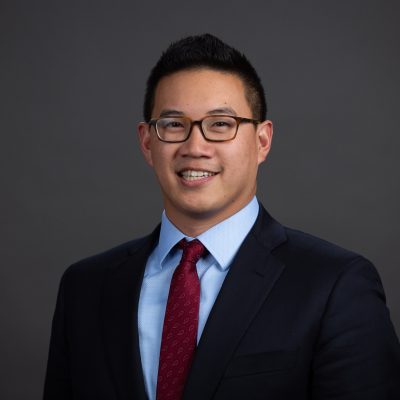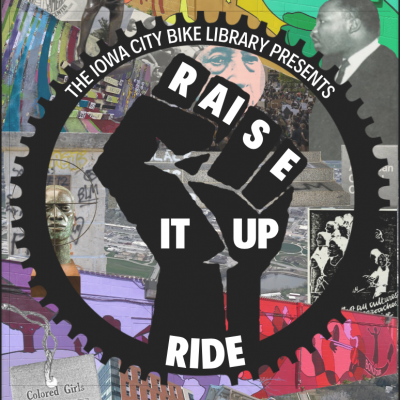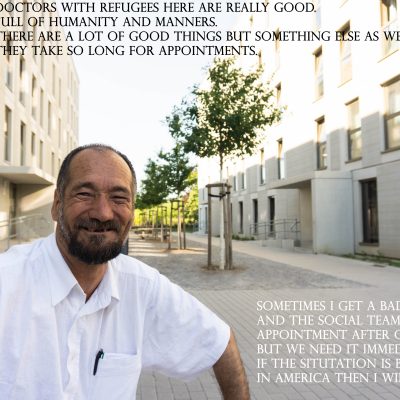Article
In 2020, the demographic breakdown of the law profession was 85% White, 5% Black, 5% Latinx, 3% Asian, and 2% Native, Indigenous or other. The California Law Review (CLR), where Samson Lim served as the 109th Editor in Chief, elected to start a new series to address the marginalization of BIPOC voices in the legal community by starting a conversation on human-centered lawyering. The discussion on human-centered lawyering was born out of the urgency to bridge the gap between lawyers and the populations served by lawyers in an effort to counter the culture within legal professions which perpetuates systemic racism in the law.
With the support of Humanity in Action’s Racial Equity Grant, CLR launched the new series, CLR in Context, designed to inspire conversations that give context to legal activities and engage actors in critical conversations. The foremost intention of the project is to unveil the human essence of systems of oppression in the United States. CLR in Context aims to bring this human essence to the law through inspiring critical thinking on questions such as: Who writes the law? Who writes about the law? Who is harmed by legal structures as they exist now? Who can change the status quo?
Project Objectives
The first objective of CLR in Context was to empower marginalized voices in the legal community by strengthening the positions of underrepresented identities internally at the California Law Review.
The second objective of CLR in Context was to open up legal scholarship to underrepresented voices in the legal profession and wider context by providing an inclusive platform to them.
Progress & Achievements
 CLR in Context achieved both of its set out objectives which were measured through attendance tracking among other metrics. On average, CLR in context saw 25 people each at their events along with an average of 60 views on the published Youtube conversations.
CLR in Context achieved both of its set out objectives which were measured through attendance tracking among other metrics. On average, CLR in context saw 25 people each at their events along with an average of 60 views on the published Youtube conversations.
To address the first objective, CLR in context held a number of inclusion trainings that trained editors in identifying and checking their implicit biases. Furthermore, internal processes were reviewed and interrogated through a lens of equity and justice.
The second objective was approached through the hosting of 4 CLR in Context events. Two of these conversations, “Nourishment as and for Resistance” and “Envisioning a Revolution” were published on Youtube.
- Nourishment as and for Resistance, Oct. 7, 2020
Nourishment as and for Resistance was a CLR in Context conversation facilitated by Basic Needs Food Manager, Natalia Semeraro. The conversation included the perspectives and experiences of 3 gastronomic connoisseurs, Aaron Hutcherson from the Hungry Hutch, Jocelyn Jackson from Justus Kitchen and the People’s Kitchen Collective, and Miguel De Leon, a Restaurant Director and Wine Sommelier. During this conversation, the panelists were able to explore the role that food plays in protest, well-being and media, as well as how food -and food policy- are influenced by broader culture.
- Envisioning a Revolution, Oct. 28, 2020
Envisioning a Revolution was another conversation at CLR in Context facilitated by Veronica Bognot, a Berkeley Law Student and cofounder of Arts Innovation Representation SLP. This exchange happened among 3 Creatives, Erika P. Rodriguez, DeLesslin “Roo” George-Warren, and De Nichols, currently using their careers in various ways for artistic civic expression and progress. Through their own mediums of expression, these artists are able to advocate for, exhibit, and support hidden issues in today’s society. The conversation was centered on the ways we see art, what meanings we make of it, and what we do with that meaning.
A key indicator of CLR in Context’s success hinged on the successive leadership team’s continuation of the human-centered lawyering efforts.
A key indicator of CLR in Context’s success hinged on the successive leadership team’s continuation of the human-centered lawyering efforts. The hosting of the AAPI Mental Trauma was one manifestation of this where CLR in Context partnered with various affinity groups to facilitate a dialogue on Mental Trauma in the Asian and Pacific Islander American Community.
Overall, CLR saw an increase in the number of student editors and external authors publishing on CLR Online which plays a key role in opening legal scholarship up to the critical perspectives of underrepresented voices within the community.
Samson was invited to speak about the progress and success of CLR in Context at HIA’s Unapologetic: The John Lewis Legacy and the Fierce Urgency of the Now conference in July 2021. During the talk , Samson spoke about the work that he and his leadership team did to help CLR in Context focus on human centered -lawyering and push the legal profession towards greater equity and justice.
See the HIA Racial Equity Grant Report on CLR in Context for more information on this project.
Updated February 2022




